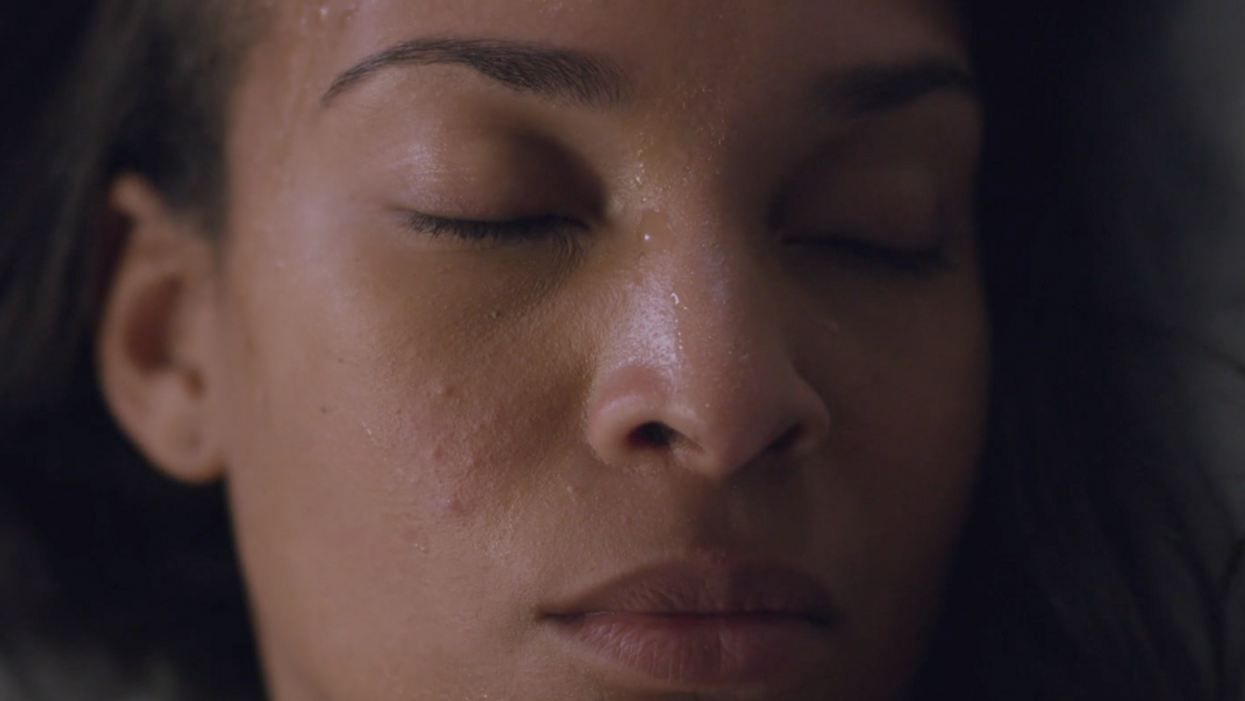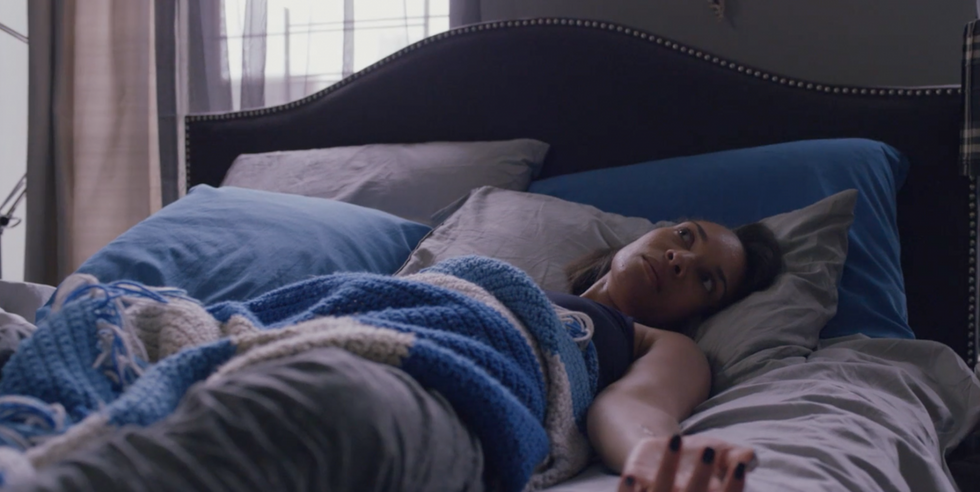What it Takes to Shoot a 13-Page Short in 3 Days
This BlackStar Film Festival short packs a big punch.

[Editor's Note: No Film School sent Scout Tafoya to cover the 5th annual BlackStar Film Festival in Philadelphia.]
The Black Star Film Festival may look like a modest affair to outsiders, but I wonder how long that will remain true. The emotions and responses are enormous inside its packed screening rooms; it's only a matter of time before all that energy spills into the streets.
Of the many inspiring films programmed this year, a little horror-thriller short called Paralysis caught my attention. A woman sits alone in her apartment having fits of sleep paralysis where she imagines horrible things happening to herself in the wake of a cataclysmic personal tragedy. The film deals with mental illness in the black community—which may as well have never been spoken about publicly for all the attention the issue receives.
"With psychological thrillers, you never know if the film is effective until you see it with a large, unsuspecting audience."
Director R. Shanea Williams, for whom Paralysis was her second film, told No Film School that representation is key. "Exploring mental illness in African American community in film is an opportunity to provide visibility to the masses," Williams said. "Mental health is a subject very close to me. In many ways, mental illness in the African-American community is still taboo. I hope this can start a conversation surrounding mental health." Paralysis has the potential to be a success story for other independent filmmakers looking to branch into honest films on uncomfortable subjects.
No Film School sat down with Williams, producer Anthony Davis, and co-producer Mshon Pulliam to discuss bringing Paralysis to life.
No Film School: Tell me about the process of making this film, from the idea to funding.
Williams: Like many short films with limited resources, there's lots of blood, sweat, and tears that go into making and completing a short film. It all starts with the script. I was really interested in writing and directing a psychological horror-thriller. It's one of my favorite genres and there are so few African Americans cast in those films, especially in leading roles. The theme in most psychological horror-thrillers surrounds a question of sanity. Is the protagonist losing their grip on sanity or are these strange occurrences real?
I had the idea of a young woman who is dealing with mental instability, and after my own mini episode with sleep paralysis one night, I thought it'd be an interesting subject to tackle. After researching sleep paralysis, I knew I had a story and I wrote the script. I wrote 11 drafts! It was important to get the script as tight as possible. My producer Anthony Davis and I then raised money through a three-month Indiegogo campaign.
NFS: A lot of the films at Black Star were made with the help of Kickstarter or Indiegogo campaigns. How does the crowdfunding era seem to be evolving?
Mshon Pulliam: I think this era of Indiegogo is sustainable because it offers a centralized, organized, and professional-looking platform to tell "what" your film is about, "how" the stages of executing your film will be done, and "why" funding for your film is important. It's a great tool for passionate ideas to obtain funding and increased exposure. I think the crowdfunding boom will continue to have success as long as quality creatives utilize the space, success stories are told, and the site continues to create innovative ways to donate and track progress.

Williams: Hiring the cast was the easiest part. The lead actress Nia Fairweather and I have known each other for the past three years and I was familiar with her amazing work. I sent her the script and she was interested. We brought a few crew members from our previous short film, Contamination, and put out ads to hire others.
Hiring the DP was the most crucial element because it was important to hire someone who completely understood my vision as a filmmaker. We hired Adam Richlin and he was the perfect choice. He really understood the atmosphere. The film's colors have a deceitful quality to them. Everything looks perfect on the surface to match the lies the heroine tells herself and her family. When she starts losing control, the color scheme changes and that too-perfect sheen looks all the more false. A little ingenuity goes a long way on a tight budget.
"The only way to shoot a 13-page script in three days is to be super prepared."
NFS: What was the process of production?
Williams: We shot the film in three days in Harlem. The only way to shoot a 13-page script in three days is to be super prepared. I had long meetings and discussions with crew members and cast prior to shooting so everyone would be on the same page. I rehearsed with my actors a day prior to shooting.
Overall, it was a pretty smooth shoot. There's always going to be a few snags once you're on set, but we were fortunate that we could come up with solutions very quickly. That's when you know you have a great team. After the shoot, we went straight into the editing process, which took about three months, before heading to the sound designer and colorist.
NFS: How did you wind up at BlackStar?
Williams: BlackStar was one of the wonderful festivals that accepted our film. It was an amazing experience to have our East Coast premiere there and get such an amazing response from the audience. With psychological thrillers, you never know if the film is effective until you see it with a large, unsuspecting audience. The audience really was freaked out during many parts of the film, so I knew our mission was accomplished.












